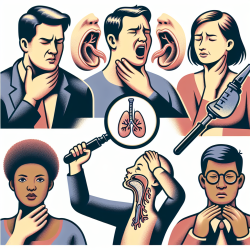Introduction
As practitioners dedicated to improving the lives of children, it is essential to stay informed about research that can impact our work. The study titled Youth working in tobacco farming: effects on smoking behavior and association with health status provides valuable insights into the health and behavioral challenges faced by youth involved in tobacco farming. This blog post explores how practitioners can utilize these findings to enhance their practice and advocate for better outcomes for children.
Key Findings from the Research
The study conducted in Jujuy, Argentina, revealed several concerning trends among youth working in tobacco farming:
- Youth in tobacco farming reported higher rates of fair or poor self-perceived health (30.3% vs. 19.0%) compared to non-farming peers.
- There was a significant association between tobacco farming and increased rates of serious injuries, accidental injuries, assaults, and chemical poisoning.
- Youth involved in tobacco farming had higher prevalence rates of smoking behavior, including ever smoking (67.9% vs. 55.2%), current smoking (48.0% vs. 32.6%), and established smoking (17.8% vs. 9.9%).
Implications for Practitioners
Practitioners working with children, especially those in rural or agricultural communities, can use these findings to inform their practice in several ways:
- Health Education: Educate children and their families about the health risks associated with tobacco farming and smoking. Use data from the study to highlight specific risks and encourage preventive measures.
- Advocacy: Advocate for policies that protect youth from hazardous work environments. Engage with local and national stakeholders to promote regulations that limit youth involvement in tobacco farming.
- Support Services: Develop support programs for youth involved in tobacco farming, focusing on mental health, injury prevention, and smoking cessation.
Encouraging Further Research
While the study provides critical insights, it also highlights the need for further research. Practitioners can play a role in encouraging and participating in research efforts to deepen our understanding of the impact of tobacco farming on youth. Areas for further investigation include:
- The long-term health effects of exposure to chemicals used in tobacco farming.
- The psychological impact of working in high-risk environments and its relation to smoking behavior.
- Effective intervention strategies to reduce smoking rates among youth in agricultural communities.
Conclusion
The findings from the research on youth working in tobacco farming underscore the importance of data-driven decisions in shaping policies and practices that protect and promote the health of children. By leveraging these insights, practitioners can enhance their efforts to create safer, healthier environments for youth. To read the original research paper, please follow this link: Youth working in tobacco farming: effects on smoking behavior and association with health status.










